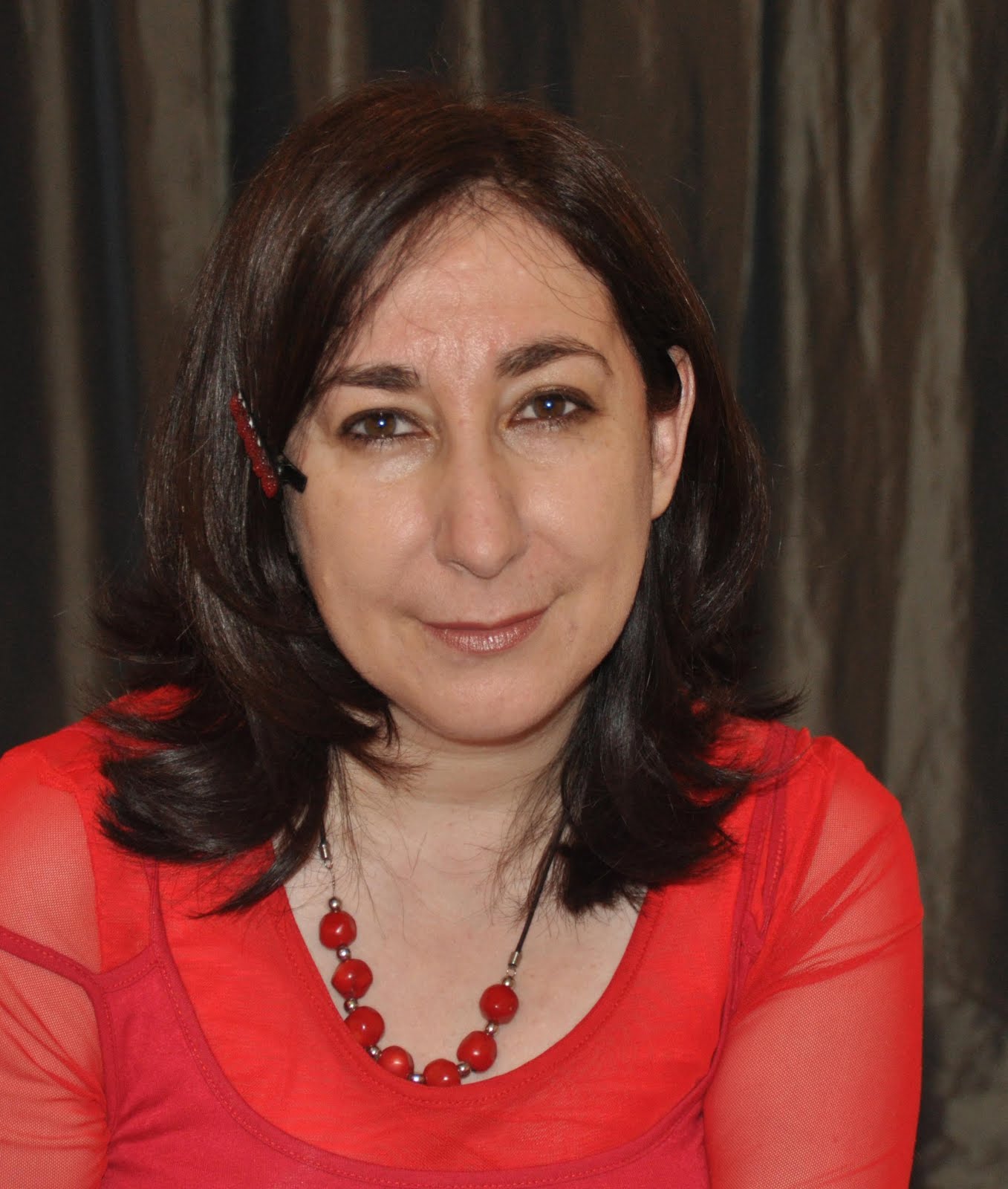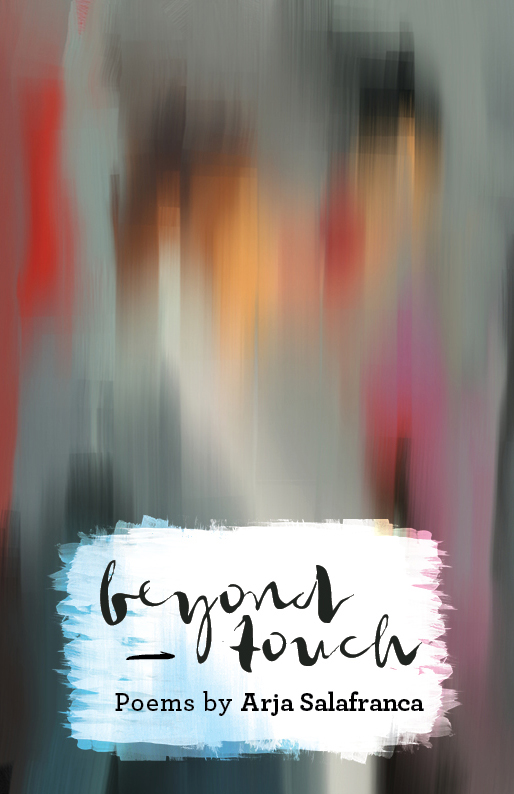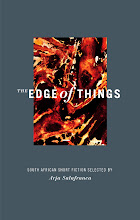Tuesday, November 29, 2011
Arja Salafranca at Love Books,Melville
At the launch of Gillian Schutte's After Just Now at Love Books, Melville, Johannesburg. From left: Jill Nudelman, Arja Salafranca, Leigh Nudelman and Fiona Snyckers.
Friday, November 25, 2011
You simply do not exist unless you ‘like it’ online
I left my cellphone at home. Racing out to an appointment mid-afternoon, and then I was off to a writers symposium that began at five, there was no time to retrace my steps, although I thought of doing so and knew that I’d be caught in hideous peak hour traffic and would no doubt be late. So, reluctantly, I accepted that I was going into the world naked, so to speak.
And naked I felt. As others around me clicked – taking photos, tweeting comments and images, uploading same – I sat there, feeling powerless and cut off...read more here
Wednesday, November 23, 2011
You can be anything you want to be
You woke up this morning
to hear that Freddie Mercury had died.
The brilliant blue light of dawn
came in through a parting in the curtain
and hurt your eyes.
You couldn't get back to sleep again.
In the background Freddie Mercury sang,
'You can be anything you want to be...'
over and over again.
You lay there,
remembering he'd told the press this weekend
that he had Aids.
Broken, cut-up lines of prose to
indicate our horror.
By hiding it in the background you
can forget about it,
stop worrying whether you can catch it from
a toilet seat or a kiss.
You make coffee and brush your teeth
watching the trees grow more emphatic
in the blue morning air.
He died of pneumonia,
it's all over the radio.
Can't smear blood over doorsteps to
indicate someone's died.
It's a clean antiseptic world,
you can't find the plague in filthy streets,
or engorged rats.
Instead you can watch the living corpses on TV.
Bared eyes enormous in concentration camp faces,
teeth large as rabbits.
The picture sticks like wet dough in your throat.
You shove it down with water
and try to swallow.
In the background Freddie Mercury sings,
You can be anything you want to be,
you can be anything you want to be.
to hear that Freddie Mercury had died.
The brilliant blue light of dawn
came in through a parting in the curtain
and hurt your eyes.
You couldn't get back to sleep again.
In the background Freddie Mercury sang,
'You can be anything you want to be...'
over and over again.
You lay there,
remembering he'd told the press this weekend
that he had Aids.
Broken, cut-up lines of prose to
indicate our horror.
By hiding it in the background you
can forget about it,
stop worrying whether you can catch it from
a toilet seat or a kiss.
You make coffee and brush your teeth
watching the trees grow more emphatic
in the blue morning air.
He died of pneumonia,
it's all over the radio.
Can't smear blood over doorsteps to
indicate someone's died.
It's a clean antiseptic world,
you can't find the plague in filthy streets,
or engorged rats.
Instead you can watch the living corpses on TV.
Bared eyes enormous in concentration camp faces,
teeth large as rabbits.
The picture sticks like wet dough in your throat.
You shove it down with water
and try to swallow.
In the background Freddie Mercury sings,
You can be anything you want to be,
you can be anything you want to be.
The Milky Way fairytale
The constellation looked like a small cluster of cotton wool through the telescope. “Relax your eyes,” said astronomer Vincent Nettman. I didn’t know how to relax my eyes, I strained a bit more, clouds were coming, obscuring even the brightest object in the sky, the waning moon, and I joined my friends inside instead...Read more here
Saturday, November 19, 2011
The Road to Publishing
I swung into Wits University’s Senate House in February a few years ago. It was a hot summer’s day. Clutching books, a bag, sunglasses looped around my fingers, the university was teeming with students, noise, life, there was a palpable energy to the place. I’d been given my student number – or rather, the faculty of Humanities had simply re-activated my old number, beginning with the numeral 90 – for 1990, the year I registered as an undergrad student at Wits. It was astonishing to realise that it had been 19 years ago that I had first became a student, started studying literature and psychology; and that some of these students milling around me had only been born that year, the year I was eighteen...Read more here
Labels:
Arja Salafranca's personal essays,
essays
Friday, November 18, 2011
Sunday, November 13, 2011
Six poems on Peony Moon
Arja’s first poem was written at the age of ten – and detailed the grim effects of typhoid, a subject she knew nothing about. Things have changed since then. Her first poetry collection, A Life Stripped of Illusions, won the 1994 Sanlam Award, her second collection is The Fire in which we burn, while Isis X (Botsotso) contains a mini collection....Read more here
Tuesday, November 8, 2011
The Thin Line - Dividing line in human behaviour
A review of The Thin Line, by Dries Blunt
This book combines excellent writing skill, an interesting choice of subject and a fine display of characters that become alive while reading.
It also carries a message of love lost and gained and how fragile relations can be.
At times I read this compilation of short stories as a number of real-life case studies which, in novel writing style, indicates the best possible portrayal of fictional reality.(Published in The Citizen)
This book combines excellent writing skill, an interesting choice of subject and a fine display of characters that become alive while reading.
It also carries a message of love lost and gained and how fragile relations can be.
At times I read this compilation of short stories as a number of real-life case studies which, in novel writing style, indicates the best possible portrayal of fictional reality.
There are 17 stories in which the thin line between lust and love, fulfillment and destruction and attraction are highlighted.
Salafranca shows amazing insight in the psychological motivation of behaviour.
The Thin Line is a collection with great impact, both delightful to read and valuable to have read.
Review of The Edge of Things, in Wordsetc

An edge is the most exhilarating point for a story to place itself. Ask any reader. We don’t need cliff-scrabbling above a literal precipice; masters (and mistresses) of the form can hollow out spaces of mystery and risk beneath the most prosaic inner or outer landscape. But what we do ask, as readers, is that the threshold matter somehow and that we are surprised and, perhaps, even changed when the story crosses it.
The Edge of Things, then, is an enticing title and a flexible one too, stretching to cover all manner of brinks. Characters cross the endlessly fascinating boundary between innocence and experience, naivety and self-knowledge, one sharing his first kiss at the company picnic, another beheading her first chicken.
What would infidelity look like? one story wonders, while another shows us what looks like cheating but turns out, in the flick of a needle, to be bridal branding instead. Worlds collide: matter-of-fact house renovations clang against soul-exchanges in one story while in another an empty house invites a range of intruders, from teenage lovers to lowering-the-tone buyers to symbolic creatures, recalling District 9, that challenge notions of inside and out.
Liesl Jobson’s “tips for super pics” apply with wit and pain to parent-child relationships, tracing shifts that the photographer protagonist catches out of the corner of her eye while her lens is trained elsewhere. Beatrice Lamwaka writes about a schoolgirl who wants to win a race on sports day. She has, after all, trained hard, fleeing rebel soldiers who abducted her. “I outran them so that’s an A+ for me. If anyone needs more practice in athletics, I’m sure it’s not me.”
Sometimes, an edge is sharp enough to draw blood. Then there’s literary edginess, fun with texts, intertextuality. Iconoclasm (“I don’t like Coetzee”) meets homage, for example, in Jeanne Hromnik’s exploration of new-South-African father figures both lecherous and pathetic. Perd Booysen amuses himself, and us too, with the device of the discovered journal, inadmissible as historical evidence because of its fictional finesse.
In David wa Maahlamela’s playful bus ride across the fiction/non-fiction frontier, we meet both Wordsetc and its editor, Phakama Mbonambi. In the optimistic view of the narrator, also called David, writers who describe lived experience “know exactly the impression they are intending to give their readers”. But this is perilous terrain for less adept scribes.
An event that bit your heart for real needs just as much construction on the page as a situation you make up from scratch. You can’t refer to that day, you must weave it, as Bernard Levinson does in “Tokai”. We have no idea whether the story draws on his life or his imagination or some alchemical meld of the two. What matters is that he shapes place, time and action so fully, so deftly that, like the narrator, we are moved by the mysterious intensity of the last scene.
The Edge of Things is in every sense a mixed bag. Alongside Levinson’s story, gems include Salafranca’s unforgettable image of a mother in an iron lung and Pravasan Pillay’s characters, dialogue and spicy small-canvas family drama.
Silke Heiss’s “Don’t Take Me for Free”, arguably Best in Show, nimbly outstrips our expectations. Like its trucker-clown narrator, Vonny, the story “was built to change”.
In Vonny’s extended appeal to her lover, “All-I-Have, Azar”, the language is as elating as the ride across ostrich and canola country in a bright-eyed van “with its massive, roaring heart and load continuing to doer ’n gone”.
The collection’s subtitle – South African short fiction – proposes that we read the stories as a kind of national sampler. (In a one-off slip, the introduction makes an unwarranted claim to be presenting writing “on our continent”.) Clearly, South African fiction has moved beyond the imperative to be earnest, political or even particularly South African. Mischief is now acceptable story territory, while Fred de Vries’s chilling tale could take place in almost any big city and Aryan Kaganof’s junkies claim that Amsterdam may as well be Durban, “there’s no fucking difference. Bars are the same everywhere. Drugs are the same everywhere.” But it is also true that, as per Hromnik, “the past is hungry”.
Several stories tackle a mix of race and privilege, either head-on or obliquely. In “Telephoning the Enemy”, for instance, Hans Pienaar crosses the “what if ?” line for an intriguing revisit of apartheid-era violence.
Solitude, as Salafranca notes in the introduction, features in many of the stories. We glimpse various anxious, closed, self-referential worlds. A man sits at a café table in the last story, telling himself consoling untruths and inking “NARCISSIST” into his crossword puzzle as he fends off contact.
What feels like a limitation, though, looking back over the collection, is neither inner landscapes nor low spirits (excellent fiction fodder) but rather a sense of stasis in some of the stories, a single note struck and held, Act 1 from curtain up to curtain down.
For these writers and for all the rest of us, Jenna Mervis’s story offers advice. Her protagonist “mentions nothing of … the fingernails of trees that have begun to tear at her corrugated roof in the night”. She looks for “a sign that … that the dangers outside have become manifest”. But by the end (and this won’t spoil it for you), she steps off the edge of the deck and plunges into the veld. Why not, writers? Instead of tamping down tension, why not let it explode? Approach the edge. Plunge. Leap.
REVIEWER: A Zimbabwean filmmaker and writer, Annie Holmes has published short stories in the US and Zimbabwe and a short memoir,Good Red, in Canada. She co-edited, with Peter Orner, Hope Deferred: Narratives of Zimbabwean Lives.
(Published in Wordsetc, Third Quarter 2011)
Labels:
Arja Salafranca,
Dye Hard Press,
The Edge of Things,
Wordsetc
Sunday, November 6, 2011
Arja Salafranca with Janet van Eeden at the Vodacom Journalism Awards 2011
Wearing my editor’s hat – with Janet van Eeden, regional winner for her column, at the Vodacom Awards on November 4 2011.
Friday, November 4, 2011
Voila! chatroom: an interview with Arja Salafranca, by Nikki Temkin

Arja Salafranca selected the short stories for The Edge of Things, a compilation of South African short stories. I chatted to her.
NIKKI: What were the criteria for selection forThe Edge of Things?
ARJA: Firstly, a story had to move and touch me, make me feel something, reflect on some aspects of life and our experiences here. Secondly, I was looking at excellence in terms of telling a story, well-crafted stories that begin with something deep inside and move readers because these were tales that just had to be told.
N: What was the inspiration for this book?
A: The book was initially meant to be an edition of the literary journal, Green Dragon. I received nearly 100 submissions and then selected the 24 stories that make up the anthology. It was too large for a journal, so I suggested that it become a special short fiction edition. I decided to do it because of my own love of the short story – as both a short story writer and as a prodigious reader of the genre.
N: Can you tell us about some of the themes of the book?
A: Some of the stories centre on solitude – and the ramifications of that, from loneliness, to a sense of fulfilment that also results from time spent alone, some centre on relationships experienced, some are about the outsider from society. Some of the stories explore the mother-daughter bond, some look at childhood experiences, some reach deep into South Africa’s past, looking at how those experiences have shaped those in the stories. Others look at identity issues in post-apartheid South Africa, and my own story deals with polio and the mother-daughter bond.
N: What do you think of South African writing currently?
A: It’s extremely vibrant and healthy – certainly in terms of the volume of fiction being produced, and we have some world-class writers, both established as well as emerging. South Africans are now so much more receptive to reading local literature – and there’s also such a range – from literary, to science fiction to crime thrillers and more.
N: Who are some of your favourite local authors?
A: I love Damon Galgut’s fierce, spare, almost uncompromising vision; David Medalie’s collection of short stories The Mistress’s Dog as well as Henrietta Rose-Innes’s Homing. I also love the poetry of Eva Bezwoda Royston (sadly she committed suicide in the 1970s). It’s personal, confessional poetry full of rich, dark and vivid imagery.
(Published in Voila!, Issue Number 8, 2011)
Subscribe to:
Posts (Atom)











.jpg)
